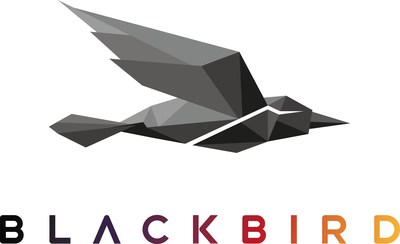Cloud native technologies drive major video production decarbonization at source finds Green Element and Blackbird study
Blackbird plc (AIM:BIRD, OTCQX:BBRDF) announced the launch of its sustainability study, 'Decarbonizing Video Production' in partnership with Green Element. This study emphasizes the crucial role of carbon-efficient technology in media production as organizations aim for net-zero emissions. It highlights that Blackbird's cloud-native platform can reduce CO2 emissions by up to 91% compared to traditional workflows. The study, endorsed by Olympic sailor Hannah Mills, indicates significant potential for broadcasters to enhance sustainable practices through native cloud solutions.
- Blackbird's cloud-native platform reduces CO2 emissions by up to 91% compared to traditional workflows.
- The study is endorsed by notable figures, enhancing credibility and outreach.
- Increased awareness of sustainable technologies can drive adoption among broadcasters and content producers.
- Despite improvements, a significant number of broadcasters still utilize inefficient 'cloud-based' technologies.
Insights
Analyzing...
LONDON, June 7, 2022 /PRNewswire/ -- Blackbird plc (AIM:BIRD) (OTCQX:BBRDF), the technology licensor, developer and seller of the market-leading cloud native video editing platform, Blackbird, today launched its latest sustainability study – 'Decarbonizing Video Production' – in collaboration with leading environmental consultancy, Green Element.

As more media organizations measure their carbon footprint and plot roadmaps to achieve net zero, the carbon efficiency of the supply chain is more important than ever. This new study highlights that whilst considerable gains have been made across the media industry due to the rise of remote production and adoption of cloud based solutions, broadcasters can go much further and faster by integrating authentically sustainable, native technologies specifically optimized for cloud workflows.
Independent research previously conducted by Green Element has evidenced that using the cloud native video editing platform, Blackbird, generates up to
Key takeouts from the paper include:
- in 2020, 480 billion hours of live video streaming led to sea ice loss the size of Scotland
90% of editors are using the cloud but65% are inefficiently and needlessly moving large files around- cloud native Blackbird reduces carbon emissions by up to
91% compared to cloud based and on premise editing workflows due to its optimized architecture - a recent ground-breaking live sports cloud production led by the IBC evidenced that cloud workflows reduce power and infrastructure requirements by
70%
'Decarbonizing Video Production' has been endorsed by the most decorated female Olympic sailor in history, Hannah Mills OBE. Hannah is also the Sustainability Ambassador for the International Olympic Committee, SailGP's Global Spokesperson for Sustainability and Founder of the Big Plastic Pledge.
Hannah Mills OBE, said: "I believe it's the responsibility of everyone, including athletes, organizers and broadcasters, to do whatever they can to reduce the environmental impact of sport and ensure that people can enjoy live sports in a more sustainable way. I'm happy to see in this white paper that more broadcasters and content producers are adopting greener technologies and that the benefits are becoming clearer to see. As we move towards a net zero world, cloud native technologies like Blackbird, will become ever more important in achieving our climate goals."
Blackbird CEO, Ian McDonough, added: "A year ago, Blackbird adopted a leadership position by campaigning for a reduction in highly polluting on premise workflows by employing cloud technology in our paper 'Video Shouldn't Cost the Earth'. Much progress has been made in this area as awareness and technology have improved."
"In our latest paper, 'Decarbonizing Video Production', we see that despite these improvements there is still a very high prevalence of 'cloud-based' technology which does not utilise the key efficiencies of the cloud, particularly those of power and carbon consumption. The rise of cloud native solutions such as Blackbird can help reduce carbon emissions at source, dispensing the need for carbon capture technology or offsets costs."
Download the report - 'Decarbonizing Video Production' - at www.blackbird.video/carbonefficient
About Blackbird plc
Blackbird plc operates in the fast-growing SaaS and cloud video market. It has created Blackbird®, the world's most advanced suite of cloud-native computing applications for video, all underpinned by its lightning-fast codec. Blackbird plc's patented technology allows for frame accurate navigation, playback, viewing and editing in the cloud. Blackbird® enables multiple applications, which are used by rights holders, broadcasters, sports and news video specialists, esports, live events and content owners, post-production houses, other mass market digital video channels and corporations.
Since it is cloud-native, Blackbird® removes the need for costly, high end workstations and can be used from almost anywhere on almost any device. It also allows full visibility on multi-location digital content, improves time to market for live content such as video clips and highlights for digital distribution, and ultimately results in much more effective monetisation.
Blackbird plc is a licensor of its core video technology under its 'Powered by Blackbird' licensing model. Enabling video companies to accelerate their path to true cloud business models, licensees benefit from power and carbon reductions, cost and time savings, less hardware and bandwidth requirements and easy scalability.
www.linkedin.com/company/blackbird-cloud
www.twitter.com/blackbirdcloud
www.youtube.com/c/Blackbirdcloud
![]() View original content:https://www.prnewswire.com/news-releases/cloud-native-technologies-drive-major-video-production-decarbonization-at-source-finds-green-element-and-blackbird-study-301562813.html
View original content:https://www.prnewswire.com/news-releases/cloud-native-technologies-drive-major-video-production-decarbonization-at-source-finds-green-element-and-blackbird-study-301562813.html
SOURCE Blackbird plc







